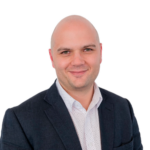Introduction
HR jobs are projected to grow by 10% by 2030.¹ Since the Covid-19 pandemic, HR job postings have increased 87%.² In addition, with the rise of new roles and responsibilities in HR, such as digital, analytics, and well-being, we see more non-traditional HR career paths and opportunities arise.
Unfortunately, we also see that most HR professionals have had limited exposure to new ways that HR careers are evolving. This article provides a brief overview of how HR careers are evolving in line with the changing world of work. We also share our research based on a digital interactive HR Career Map that we developed to expose HR professionals to new emerging career patterns. Finally, we discuss five emerging HR career patterns and share practical user stories aligned to each pattern.
The Changing Nature of Careers
The past decade has significantly shifted what people want from work.³ Movements such as the “anti-work movement,” ⁴ the “lying flat movement,” ⁵ and a call for “decent work” ⁶ all point toward the changing expectations that individuals have of employers and work. This attitude change has translated into the world of careers, with a significant shift evident in how career stages are perceived.⁷
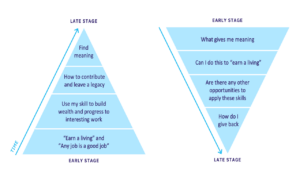
Figure 1. The shifting perceptions of success at each career stage
Traditionally, we saw individuals entering the workforce with a mindset that “any job is a good job.” Once we had built some initial skills, the need to further our careers, build wealth, and broaden our responsibilities became the primary driver of our career choices. During the latter part of our careers, contributing towards a legacy became a key priority. This legacy aspiration often translated into how individuals reflected on the meaning that work brought to their lives. Meaningful impact desire was evident with individuals in their late-stage careers engaging in mentoring and coaching others or pursuing new opportunities more aligned to a personal journey of meaning.
This traditional timing is no longer the case.
Today we find individuals already asking questions regarding meaning during the early stage of their careers. Early-stage careers today are characterized by individuals trying to turn what gives them meaning into an activity they can use to earn a living. Beyond these early stages, individuals then focus on transferring the learned skills into other domains to increase their earning potential and access different opportunities that fit their work-life philosophy. We are also finding that towards the latter stages of these careers, individuals still focus on wanting to give back to others in the form of legacy, yet this is done by reflecting on the meaning that work has brought to them in the context of their work and life and moves beyond only transferring professional skills.
Given these changes in career motivations and drivers, we set out to better understand the current reality of HR careers. Our initial insights pointed to two key challenges:
- Some HR professionals only ended up in HR by chance rather than as a conscious choice. The implication was that their knowledge of possible opportunities in the field was limited to the environments they found themselves in. If I did not work in an organization that had moved beyond only employing generalists and recruiters, my belief in what an HR career would entail was limited to those prospects;
- HR professionals needed more data and visibility of career patterns that could be explored across various contexts and environments.
Based on these two challenges, we developed the HR Career Map as an exploratory tool for HR professionals to see how careers could develop in HR. The map was created by using HR work architecture data from various organizations and publicly available databases, reviewing data available in terms of preceding and proceeding progression opportunities, and evaluating career stories against the map to test feasibility.
To date, N=6552 HR professionals have explored 10,632 paths, and the map has undergone three iterations based on user feedback on new emerging opportunities within the market.
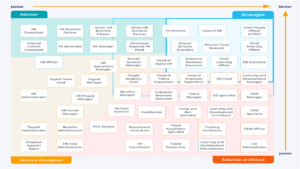
Figure 2. The HR Career Map⁸
Based on these insights, we have identified five emerging HR career patterns which we discuss below.
The Emerging HR Career Patterns
A career pattern can be described as the collection of experiences an individual engages in over an extended period of their working life.⁹ These experiences relate to roles, opportunities, occupations, projects, and/or work assignments.
We have identified five distinct career patterns that are emerging within HR. We first discuss the traditional linear career pattern, which still exists, even though it is becoming less prevalent, before moving towards new emerging patterns.
Pattern 1: Traditional linear paths
This pattern shows a steady progression of roles aligned to a specific domain, and movements are made vertically. These movements are aligned with seniority, an increase in status, and responsibility. Career movements can be in one organization or across multiple organizations throughout the career journey.
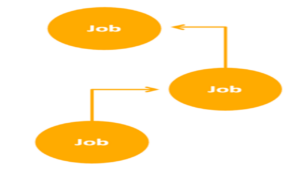 |
Mary started her career as an HR Consultant before moving to an HR Business Partner role. Next, she became a Senior Business Partner, increasing her portfolio of responsibilities before joining the Global HR team and being responsible for a region as the strategic HR partner. Mary continued to progress in seniority, and at the end of her career, she was the HR Director responsible for a regional business. |
Pattern 2: Within HR, cross-discipline
In this pattern, individuals move between disciplines within the HR job family. These moves were based on developing skills, exposure to new areas, and available opportunities within those areas to gain more exposure. Therefore, this career pattern is closely linked to applying transferable skills within different environments to unlock new opportunities.
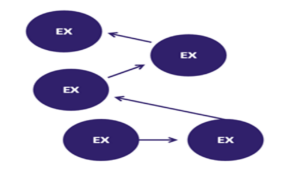 |
Jamal joined the HR team as an OD Administrator. An opportunity became available to work with the broader generalist HR team, and he moved to the HR coordinator role. He has always enjoyed data, and after doing a few short courses in data management, he joined the HR Technology team as an HRIS Analyst.
Jamal was asked to lead a project team to implement a new HR Technology solution and eventually moved into an HR Operations and Systems role. |
Pattern 3: In and out of HR
This pattern describes movements in and out of HR at different stages of the career. These moves were driven mainly by opportunities to apply transferable skills and knowledge across different settings and to reach different outcomes.
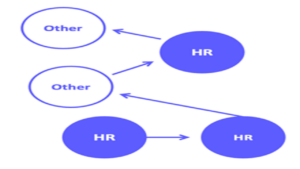 |
Abhi started his career as a call center agent directly after school. Given his product knowledge, he applied for a role as a Training Facilitator in HR tasked with training new joiners on the product suite. He continued to develop within Learning and Development but moved back into Operations as a Regional Manager of the outbound call center.
Later in his career, he returned to HR, and by applying his business knowledge, he became part of the HR Operations Leadership team. |
Pattern 4: The Squiggly Career
The squiggly career, a term coined by Tupper and Ellis (2020), 10 refers to seemingly non-linear movements driven by interests, opportunities, and individual ambitions. Again, there is no clear vertical or horizontal pattern, yet a set theme runs through all the career choices for the individual.
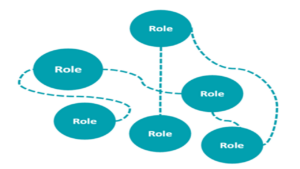 |
Kele started her career as a fashion consultant. Her next move was into a recruitment role, after which she moved out of HR to work in communications and public relations and returned to HR in a Divisional Partner role. Her last position was as part of the Employee Experience team.
Kele is motivated by the rush of dealing with being in a fast-moving, high-stakes environment where she believes her contribution is meaningful. This has been a critical characteristic of all her career choices. |
Pattern 5: The Skills-Driven Pattern
The last pattern is constructing a career around a specific skill to obtain more in-depth knowledge, exposure, and responsibility within a particular skill set. Individuals in this career love the “science” or “technical” aspects of what they do and often move into similar roles in other industries or environments.
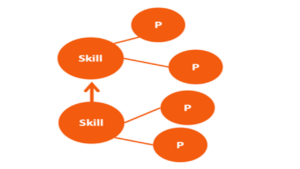 |
Laura studied labor law and started her career as a Labor Relations Expert. She has grown by taking on more complex and high-profile cases. She has moved industries a few times to gain exposure to different aspects of labor law, and over time she has also furthered her studies and qualifications in this domain. |
Where do we go from here?
Given our research, HR professionals tend to manage their careers in one of three ways:
- Chance= having careers happen to them and opportunities not being actively sought out and coming across them as and when
- Choice = choosing to actively seek opportunities that become available and aligned with ambitions and goals
- Craft= actively taking ownership of creating opportunities, even though unconventional, to achieve broader life and work goals.
HR professionals in the future need a more active craft orientation toward careers. Careers will still unfold within and between different organizational settings, increasing individuals’ need to craft their career patterns intentionally.
The concept of sustainable and self-driven careers has become the norm, with individuals and organizations taking shared responsibility for career journeys to create shared value for both. To do so, we propose three actions for HR professionals to enable them to navigate this changing career landscape:
- Action 1:Align your skills with your ambition and balance broad expertise with transferable specialist skills. To succeed in the future, we believe that HR Professionals must have core skills complemented by deep specialist skills in designated areas depending on role and context. We refer to this as becoming T-shaped HR Professionals
- Action 2:Reflect on your career’s work/life fit. What is important to you in your situation and stage of life? This self-introspection is a crucial step to understanding how your career can be crafted differently to accommodate other life priorities
- Action 3:Let go of preconceived ideas of success. In the past, many HR professionals let others define their picture of career success, usually tied to status, wealth, or power. In today’s world of work, success should be determined at a deeper level.
Does your career meet the expectations that you have set for yourself? Does your career contribute to bringing you joy? Does your picture of career success align with your life goals?
The world of work provides unprecedented access to new opportunities for those willing to craft and pursue them intentionally. The time has come for HR professionals to look after the careers of those in the organizations we guide and introspect our career trajectories and choices. An unknown source once said, “Your career reflects your choices. If you do not like your career, it is time to start making better choices.”
Endnotes
1 Human Resources Specialists: Occupational Outlook Handbook,https://bit.ly/3N6hGZs
2 https://www.hiringlab.org/2021/09/28/job-postings-tracker-through-sept-24/
3 A value-oriented psychological contract: Generational differences amidst a global pandemic – PMC, https://bit.ly/43jsFo6
4 The rise of the anti-work movement – BBC Worklife, https://bit.ly/3qfVIKB
5 What Does Lying Flat Mean in China? – Bloomberg, https://bit.ly/3qixKhY
6 Decent work, https://bit.ly/3WLrRWz
7 The changing experiences of careers. Unpublished article. Veldsman, D & Van der Merwe, M. 2023
8 HR Career Map | AIHR, https://bit.ly/3MJ7fJZ
9 The “Era of Me”: design and Integration of career paths in an era of self-directed careers, https://bit.ly/3MHPx9T
10 The Squiggly Career: 9780241385845: Tupper, Helen, https://bit.ly/3IMuFNl
